Data Vis Dispatch, February 18: German election polls, corruption, and tariffs
February 18th, 2025
9 min
This article is brought to you by Datawrapper, a data visualization tool for creating charts, maps, and tables. Learn more.
The best of last week’s big and small data visualizations
Welcome back to the 150th edition of the Data Vis Dispatch! Every week, we publish a collection of the best small and large data visualizations we find, especially from news organizations — to celebrate data journalism, data visualization, simple charts, elaborate maps, and their creators.
Recurring topics this week include migration, Brazil, and (what else!) elections.
With turnout on Sunday at its highest level in decades, French voters reversed the far right’s lead to elect an alliance of left-wing parties to a parliamentary plurality:

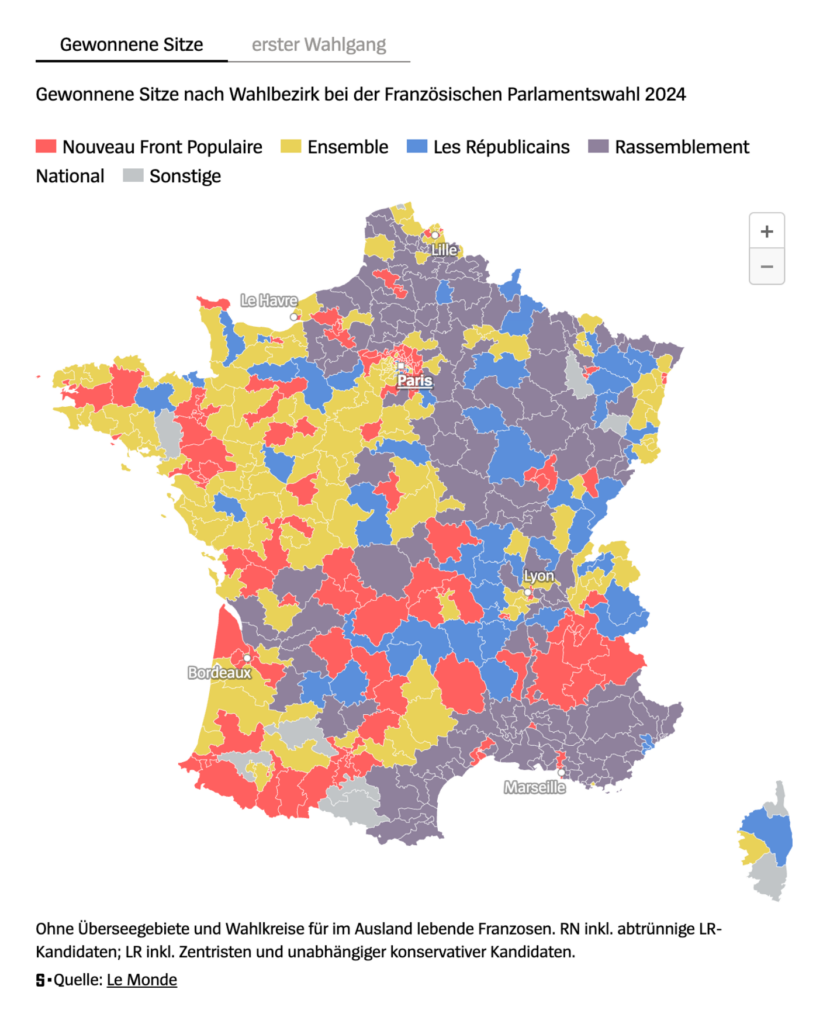
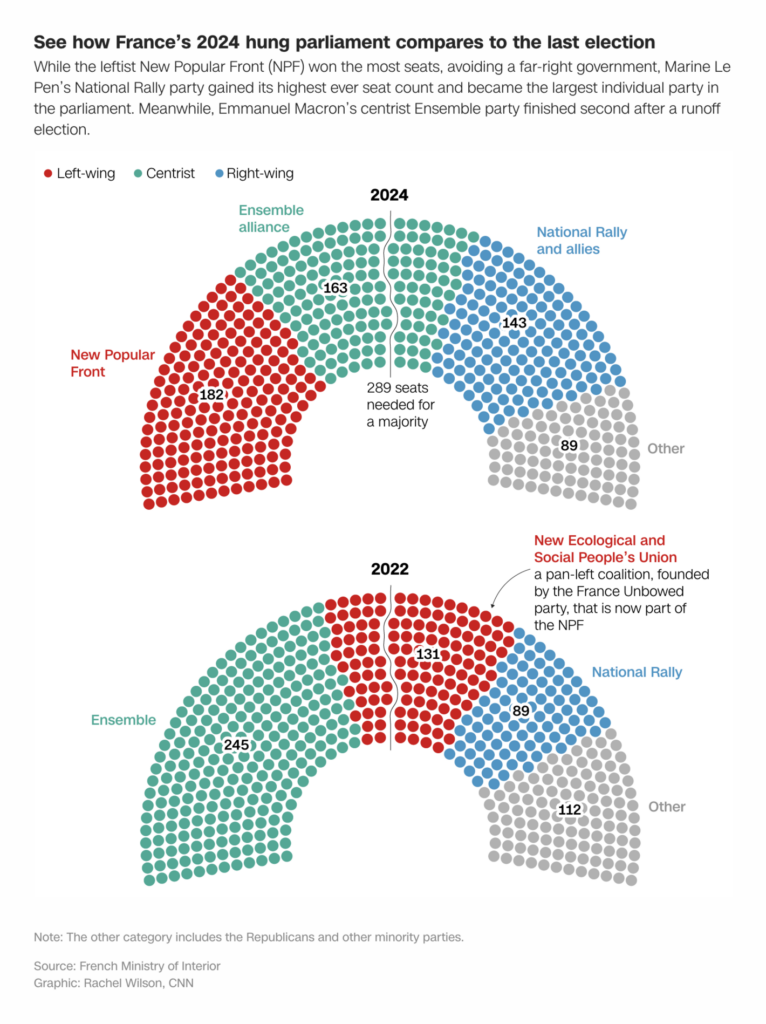
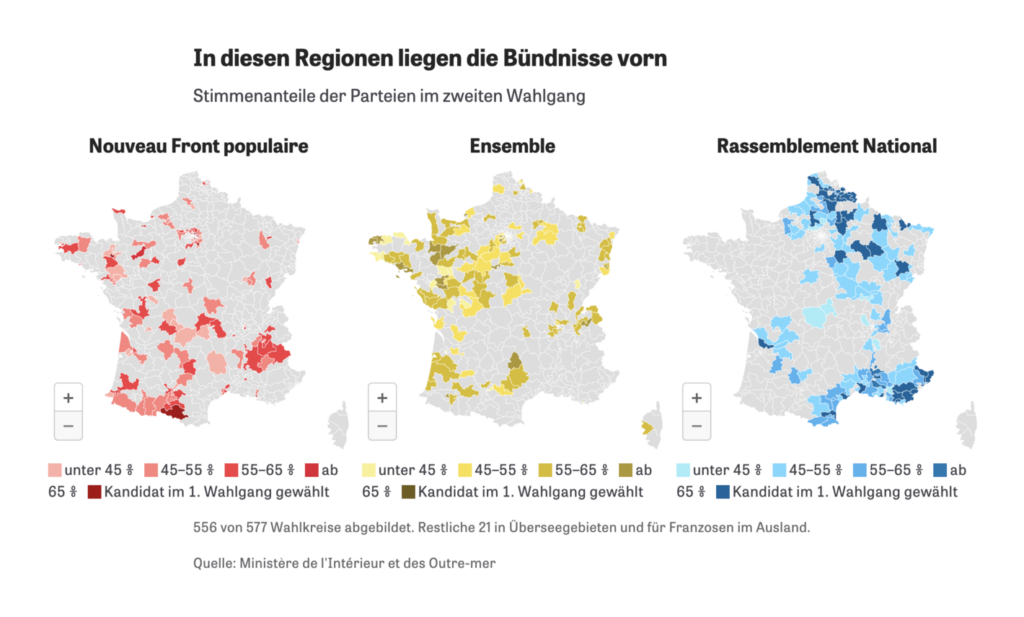
155 out of 577 French constituencies changed their political colors, some of them quite dramatically. One strategy that helped overcome Le Pen’s far-right National Rally was the targeted withdrawal of candidates from other parties in order to increase each other’s electoral chances:
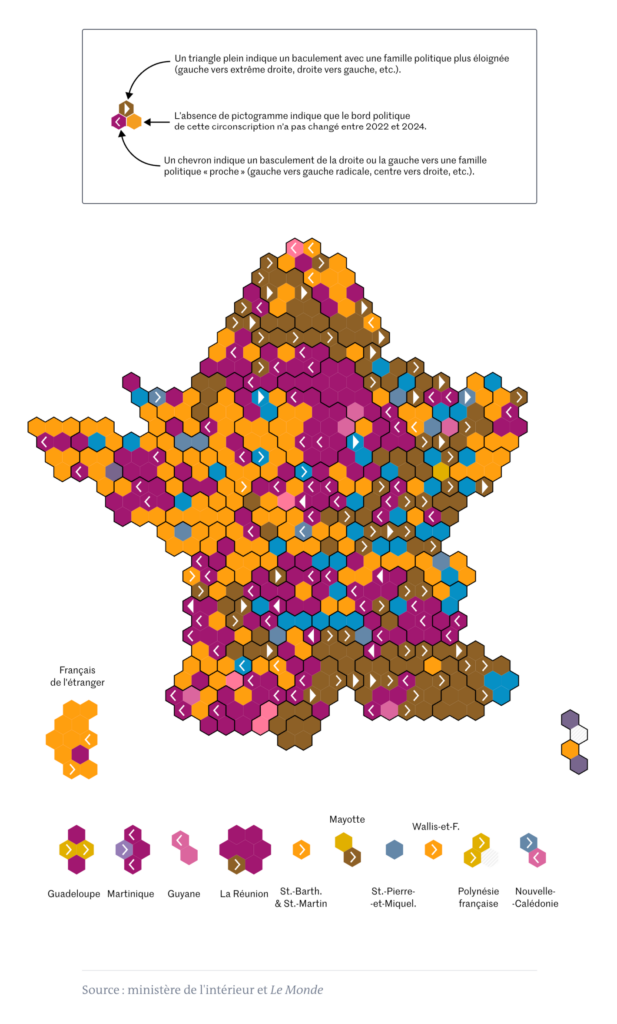
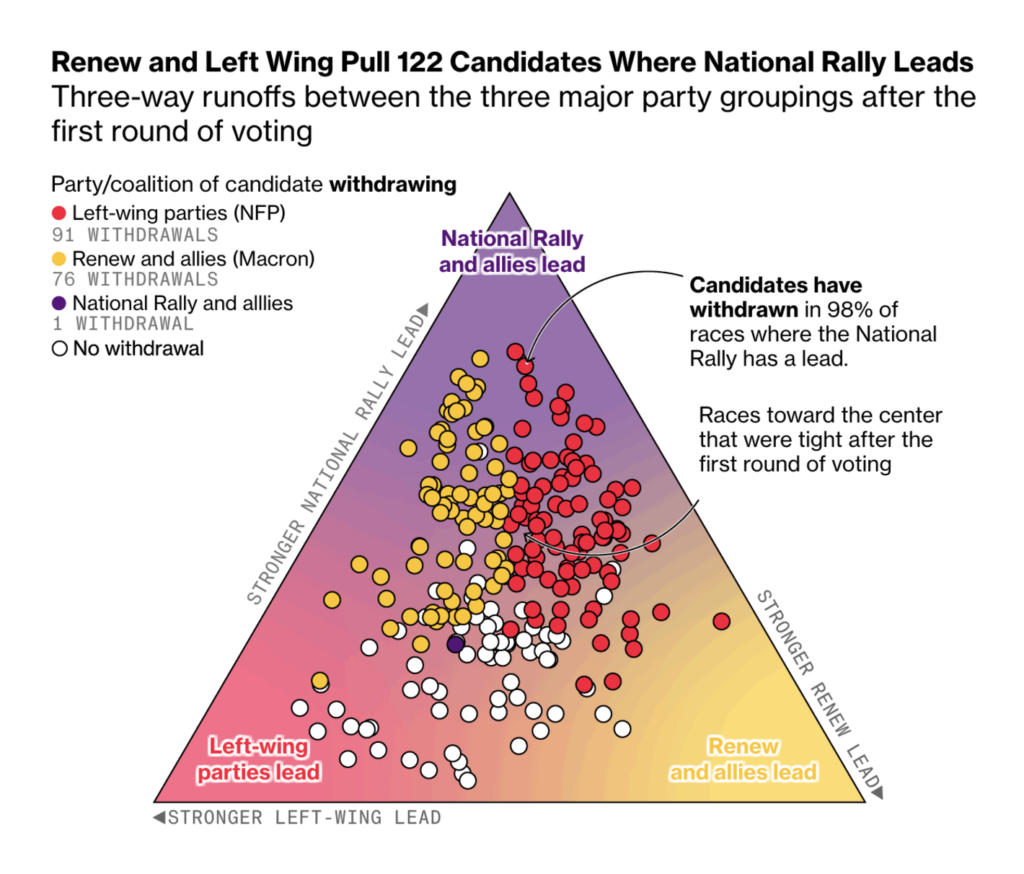
Nevertheless, the rise of the National Rally in recent years should not be underestimated. Le Monde provided a detailed story:
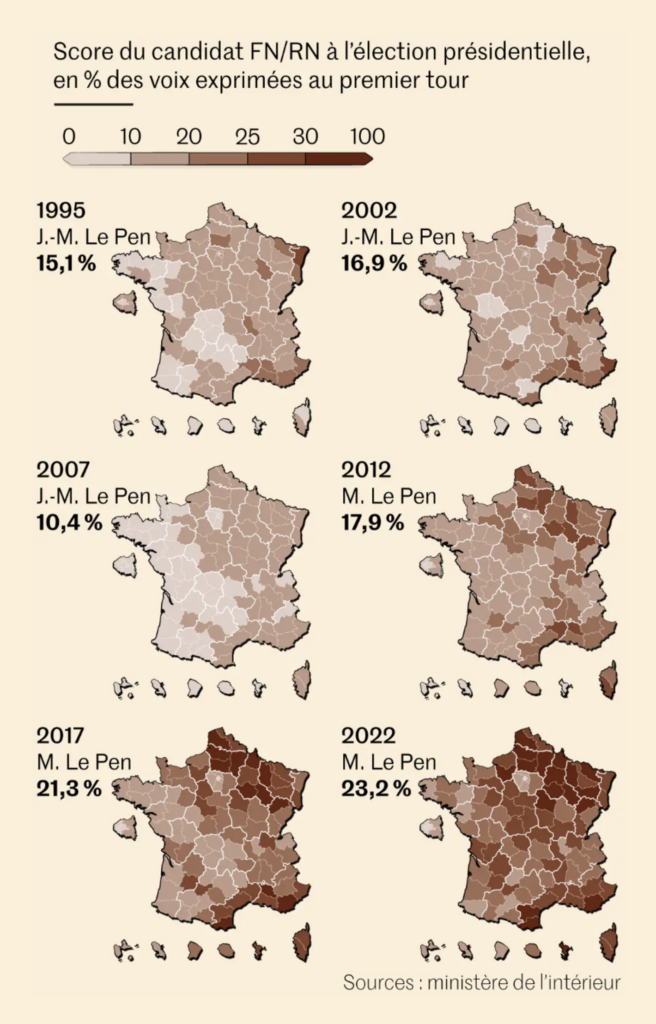
Meanwhile, the headline result in Thursday’s U.K. general election surprised no one — a historic defeat for the Conservative Party. Tactical voting also played a big role here, with Labour and Lib Dem voters working together against Tory incumbents:

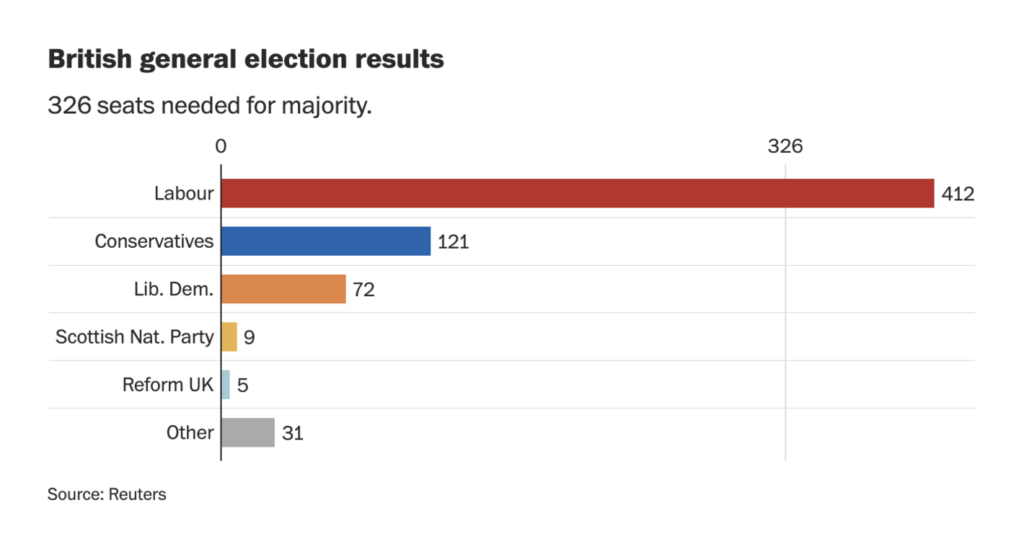
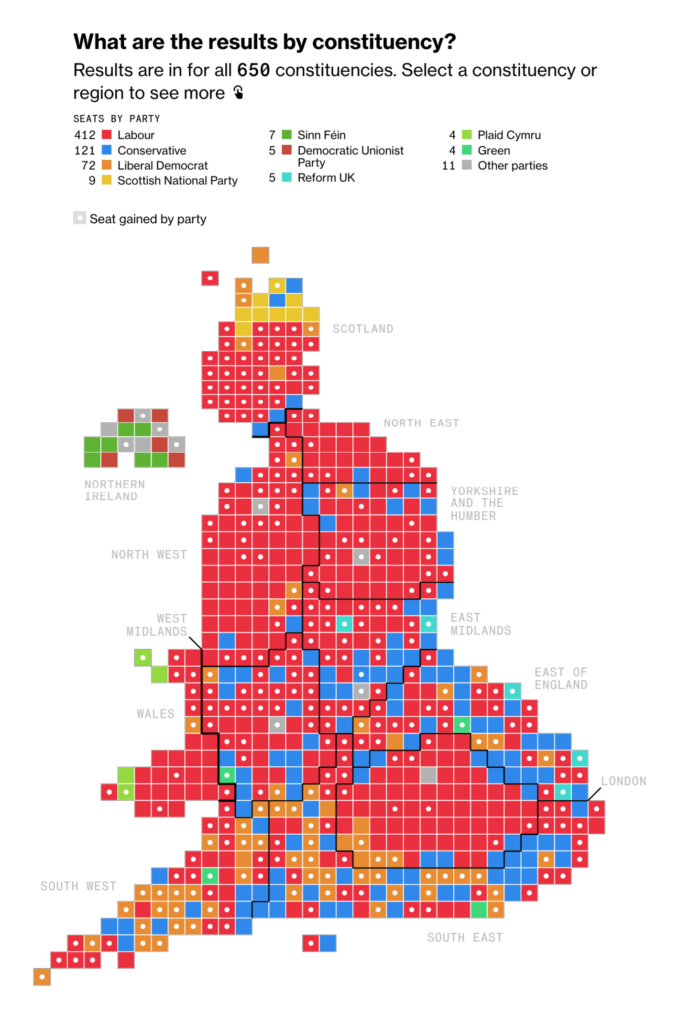
There were drastic swings in many constituencies:
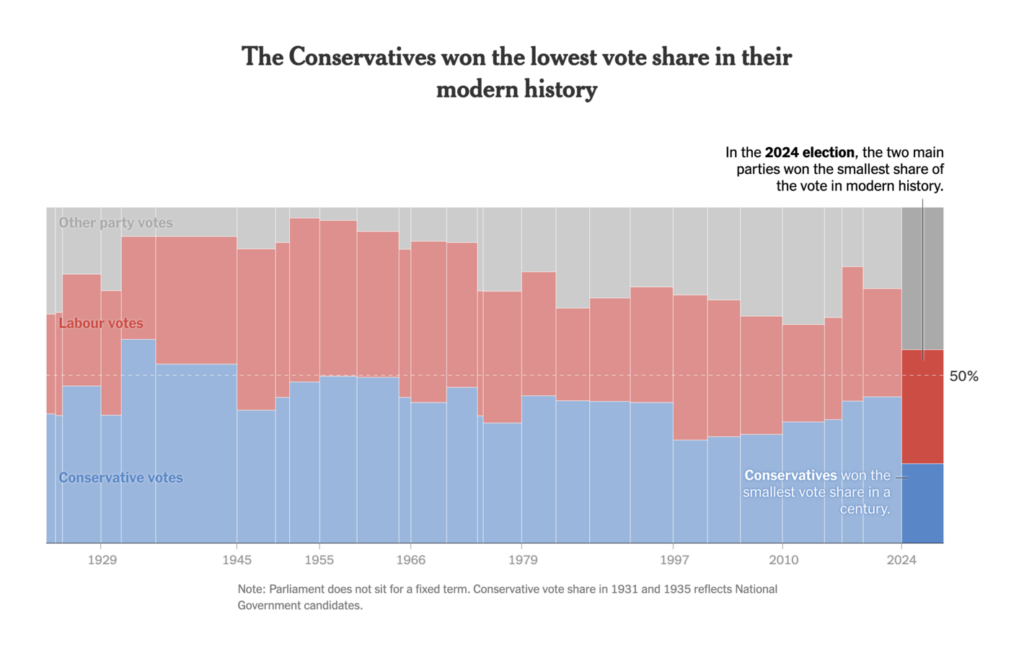
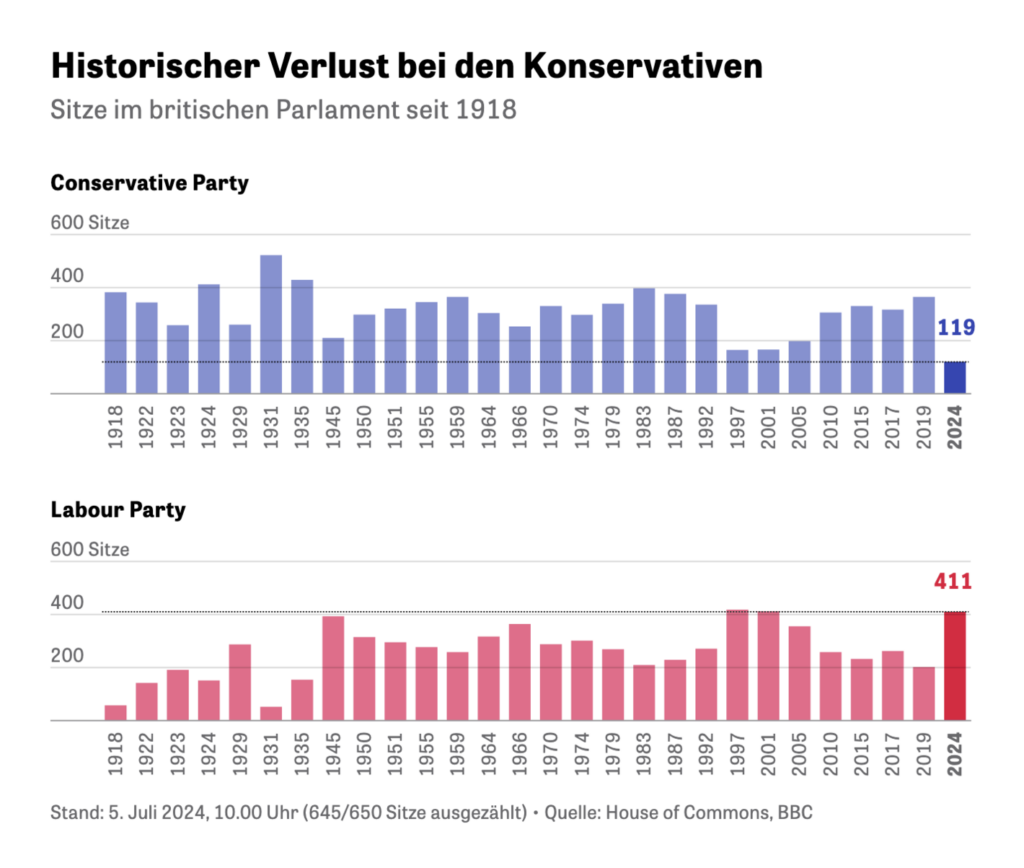
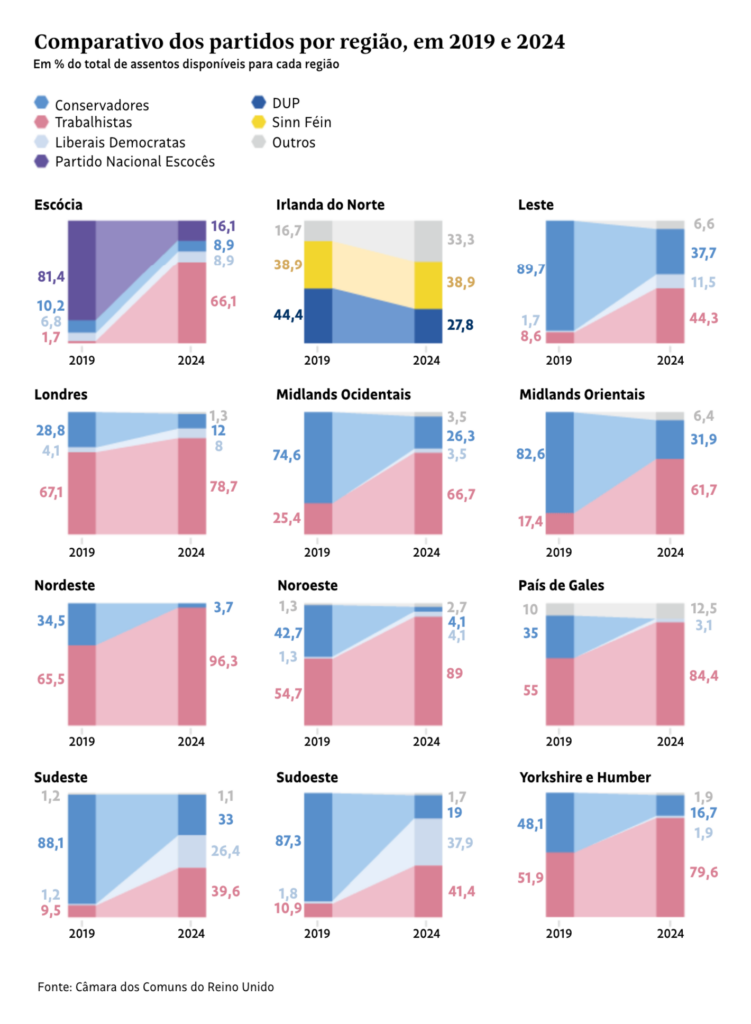
Although Labour now holds a huge parliamentary majority, their share of votes was lower than expected from pre-election polling. Reasons for this include a split in the right-wing electorate and a late shift away from Labour just before Election Day:
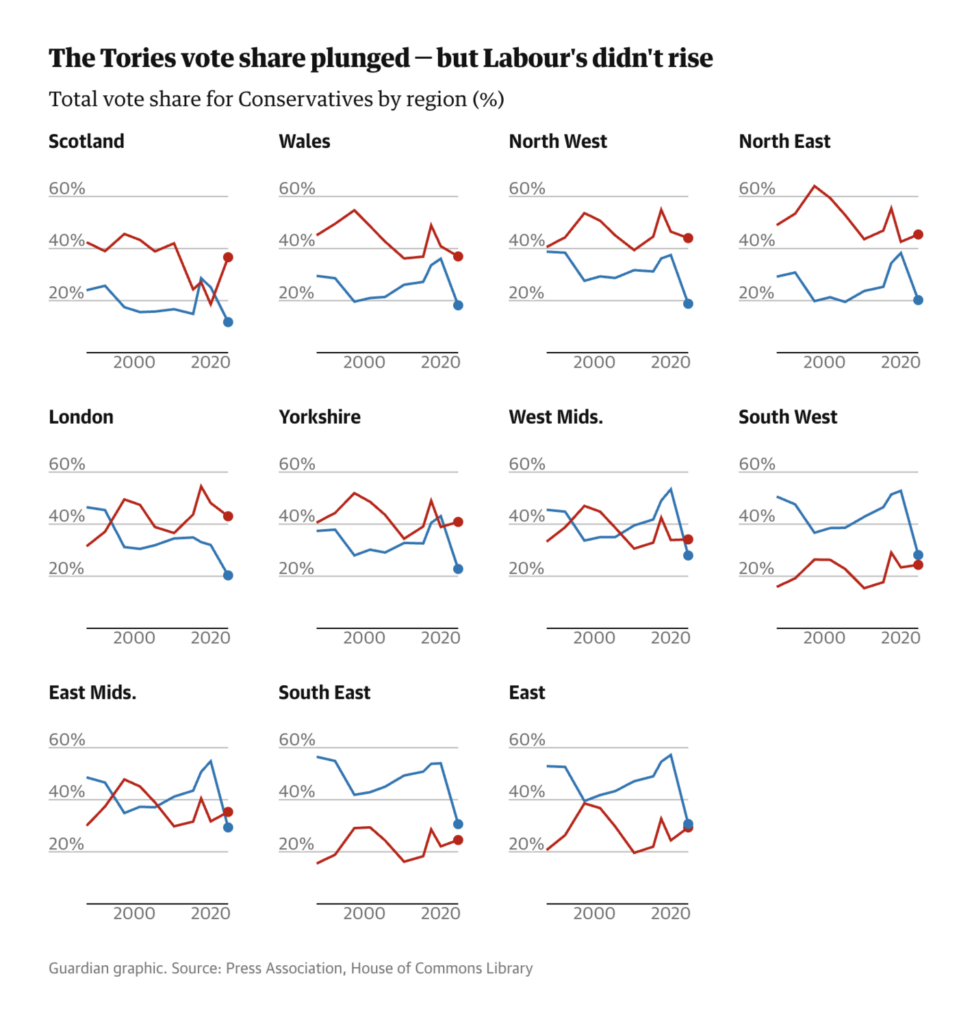
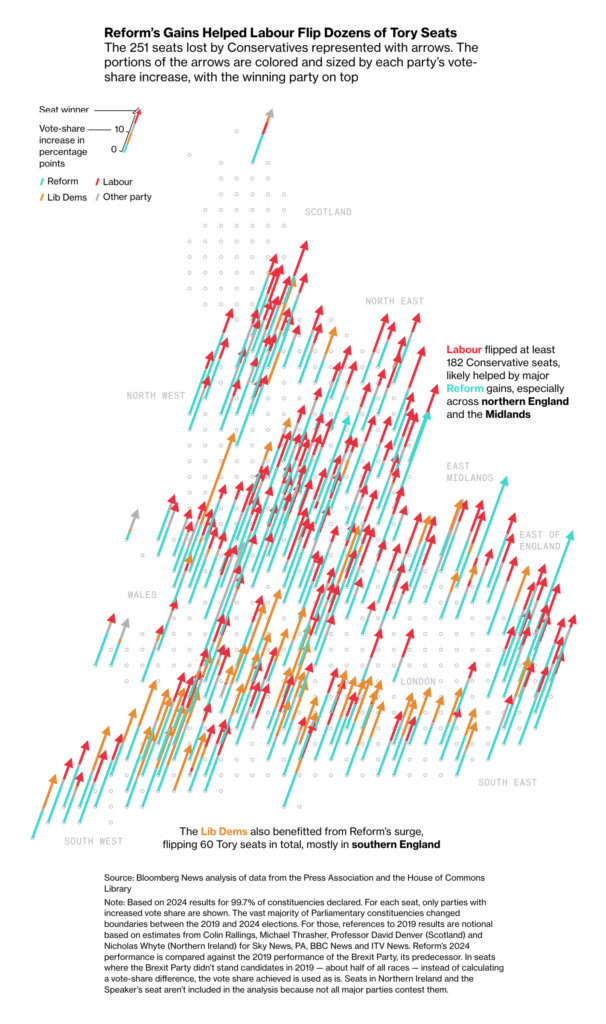
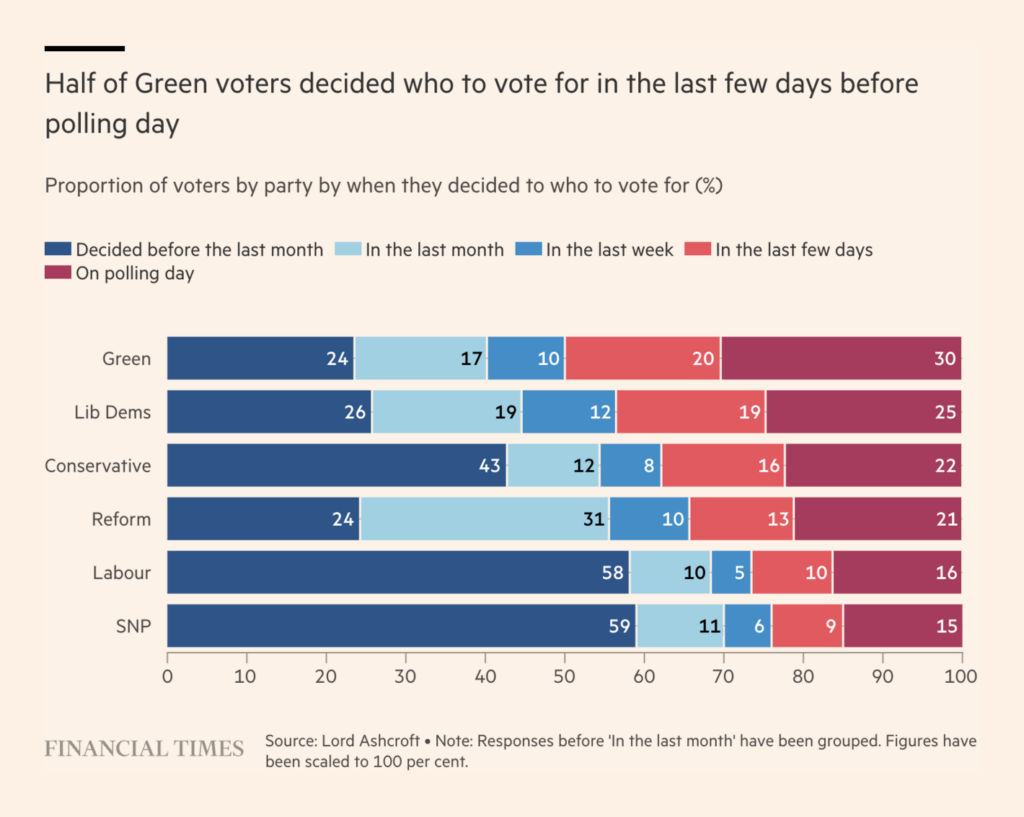
What has Labour inherited? The results of 14 years of Conservative politics, including stagnant productivity, falling living standards, and struggling public services:
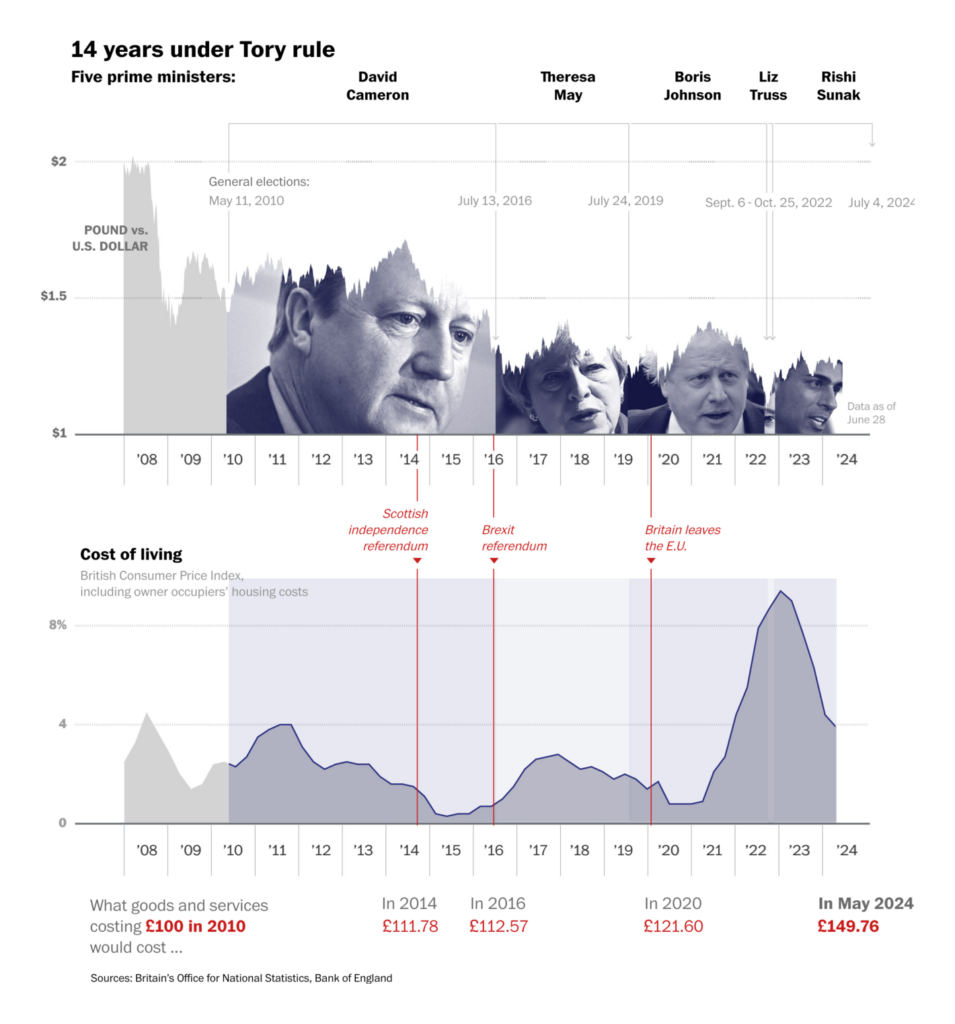
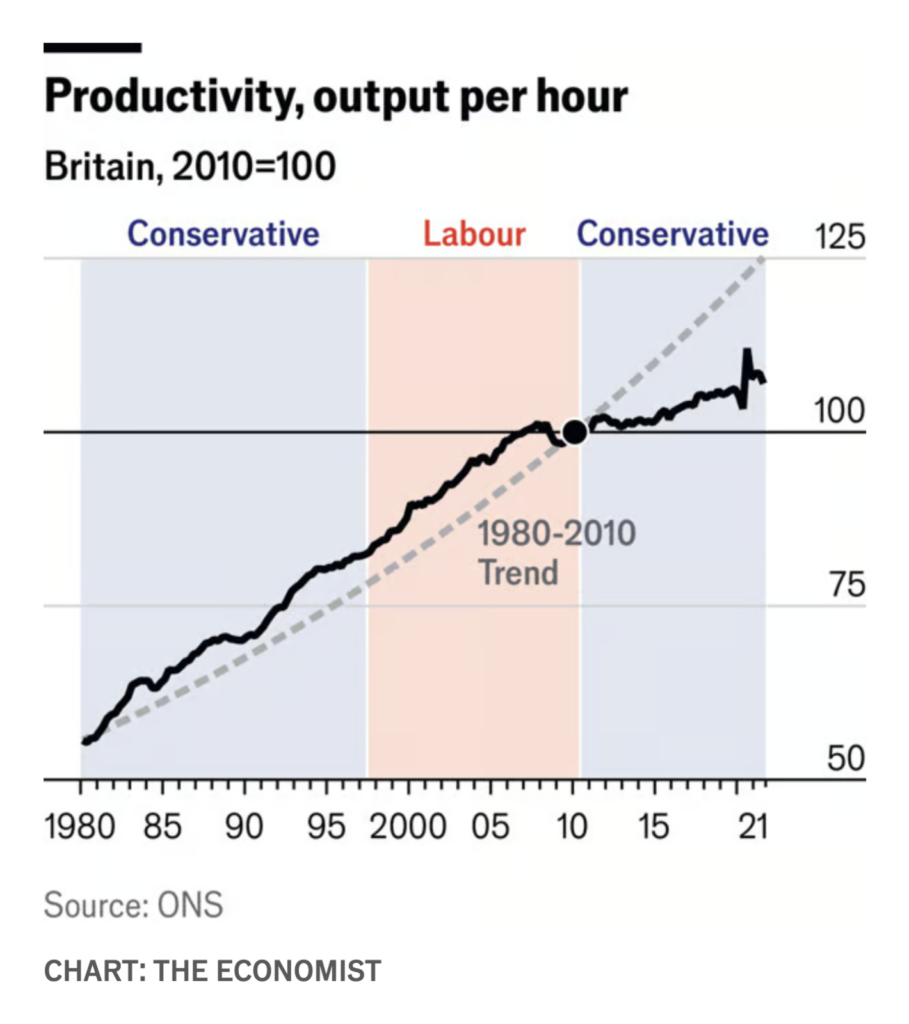
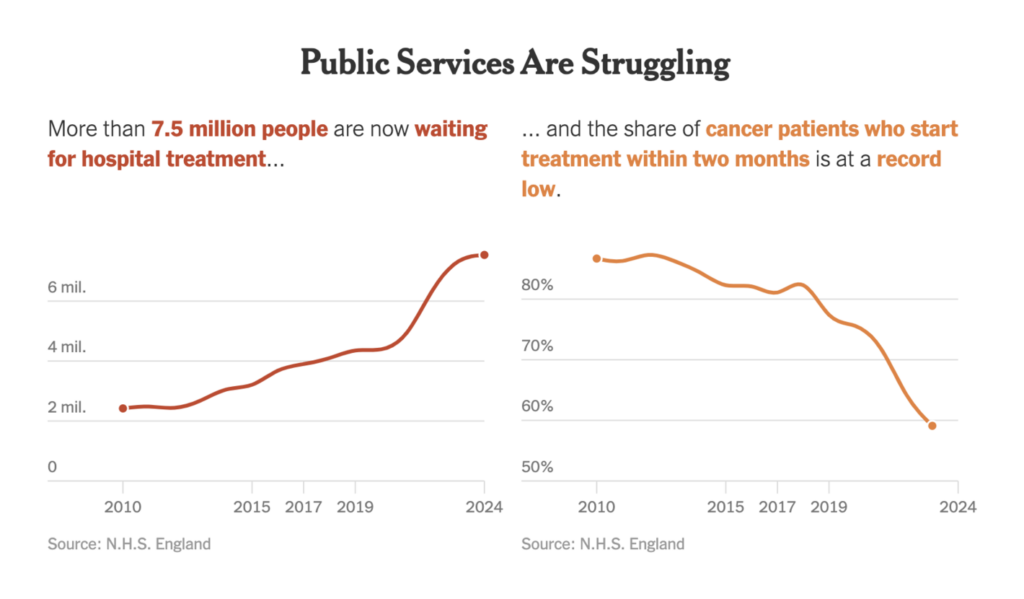
Now for an election that could hardly be more complicated: Thailand’s six-round senate race based on 20 occupational categories. This chart tries shed some light on the process — you can see that people elected in the “crossover” round also tended to finish at the top within their occupational group:
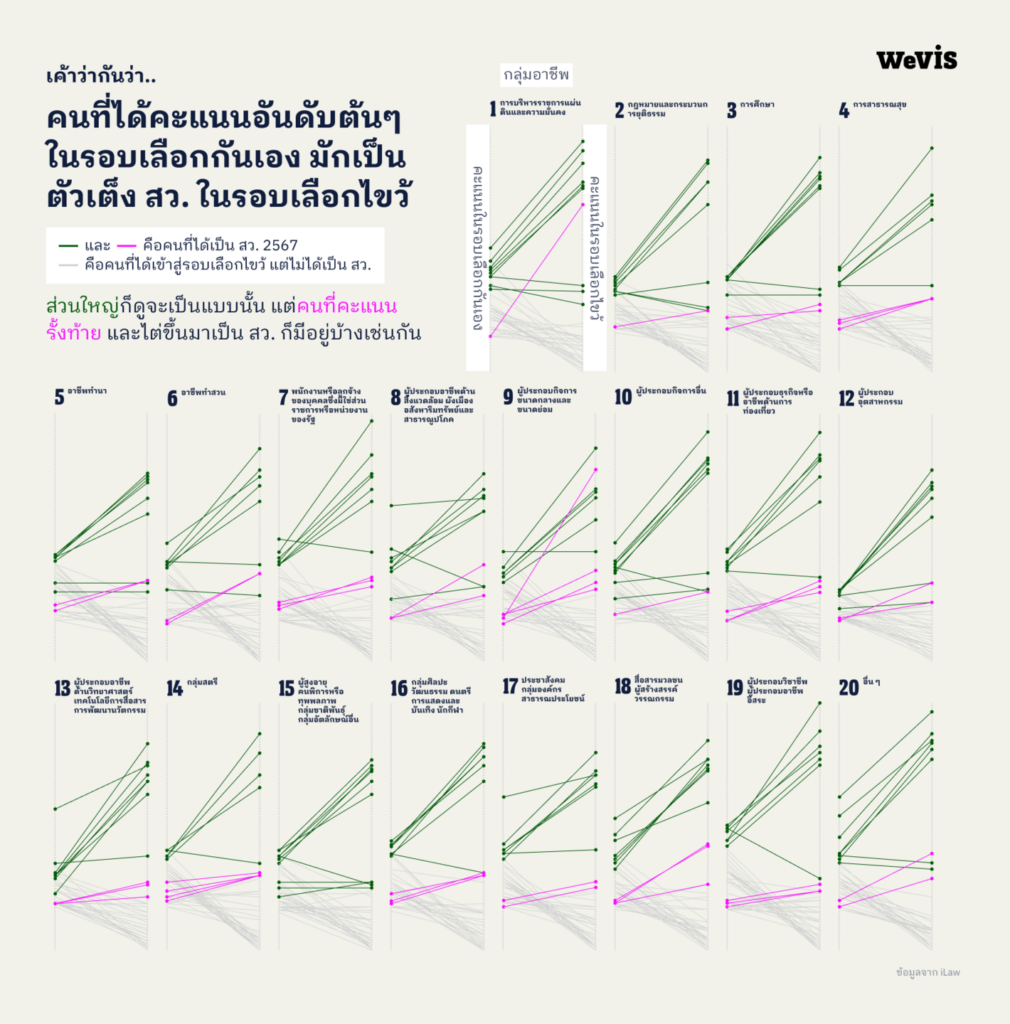
Did you know that world leaders are on average almost twice as old as the people they govern? Oh, and that some have been in office for a looong time:
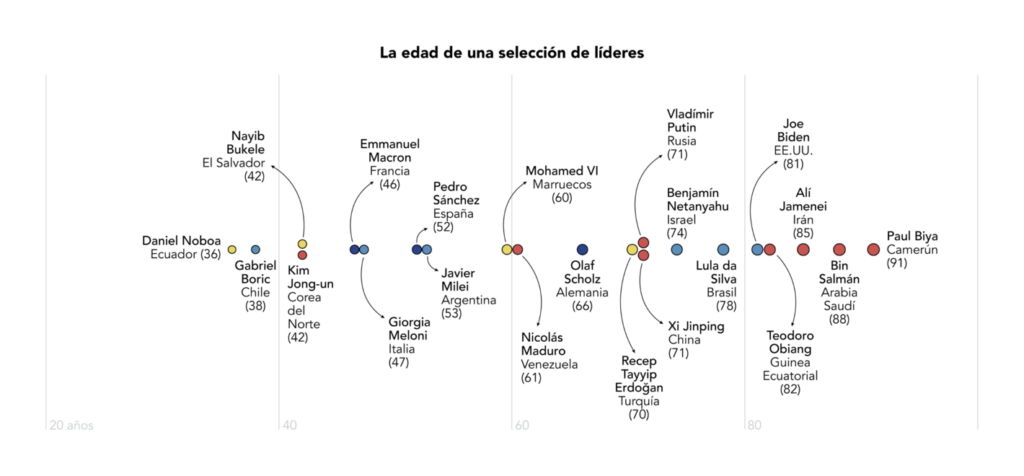
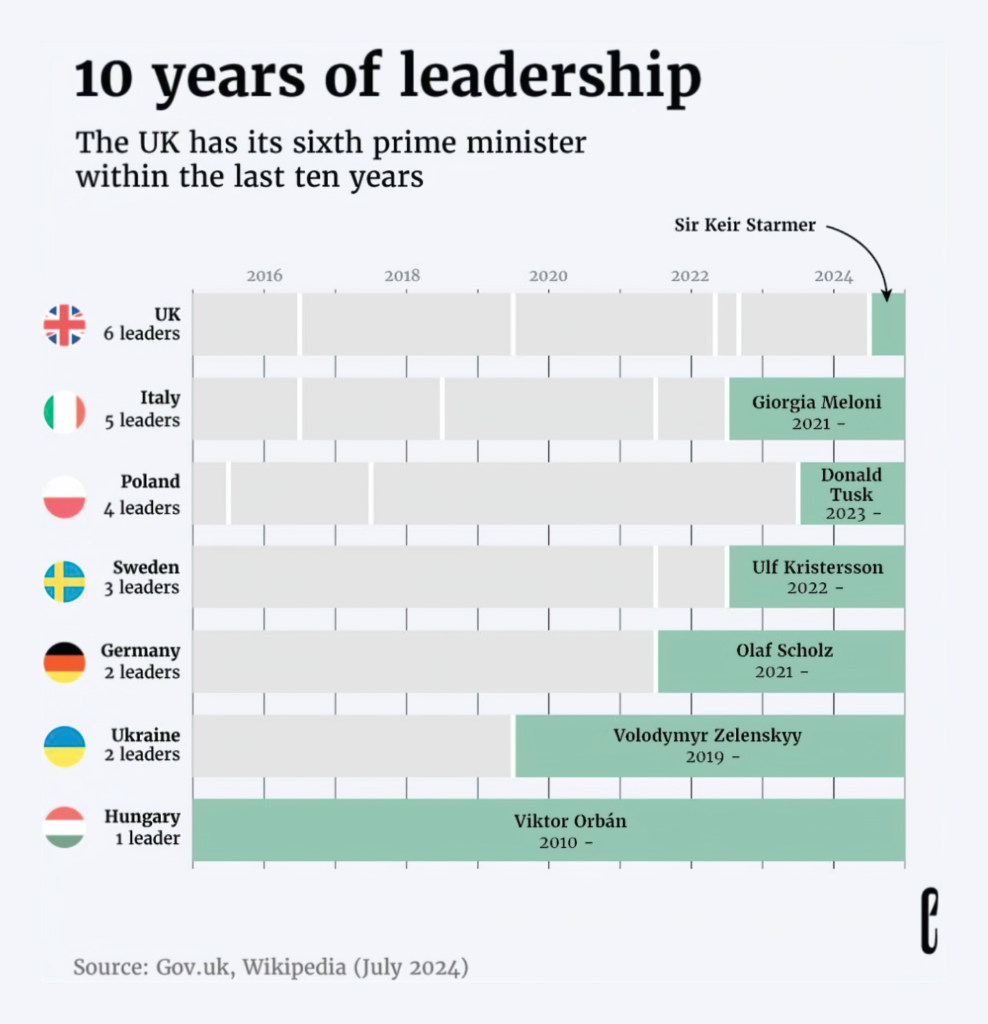
Two visualizations on GDP. First, the Economist shows cost differences and working hours change international rankings. Then a look at how Selangor, a state on the west coast of Malaysia surrounding Kuala Lumpur, contributes almost half of the country’s GDP:
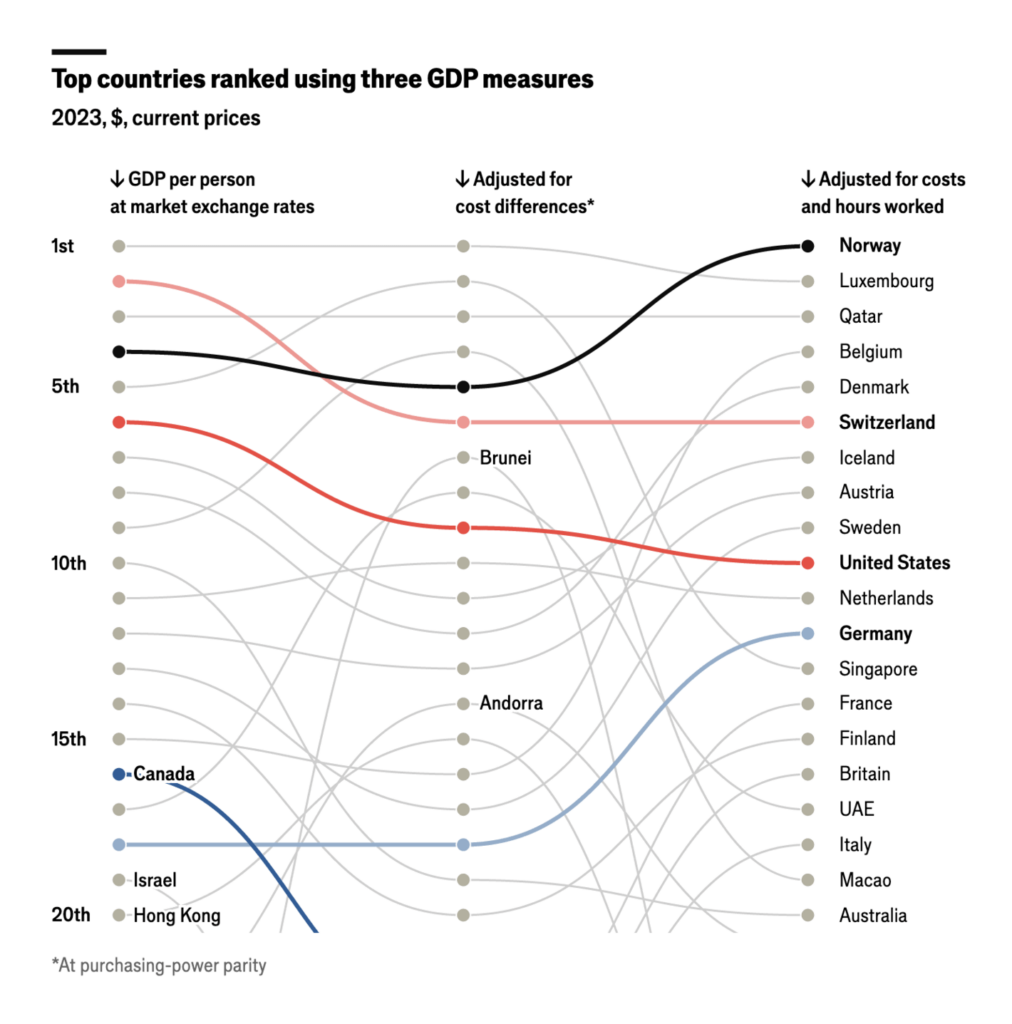
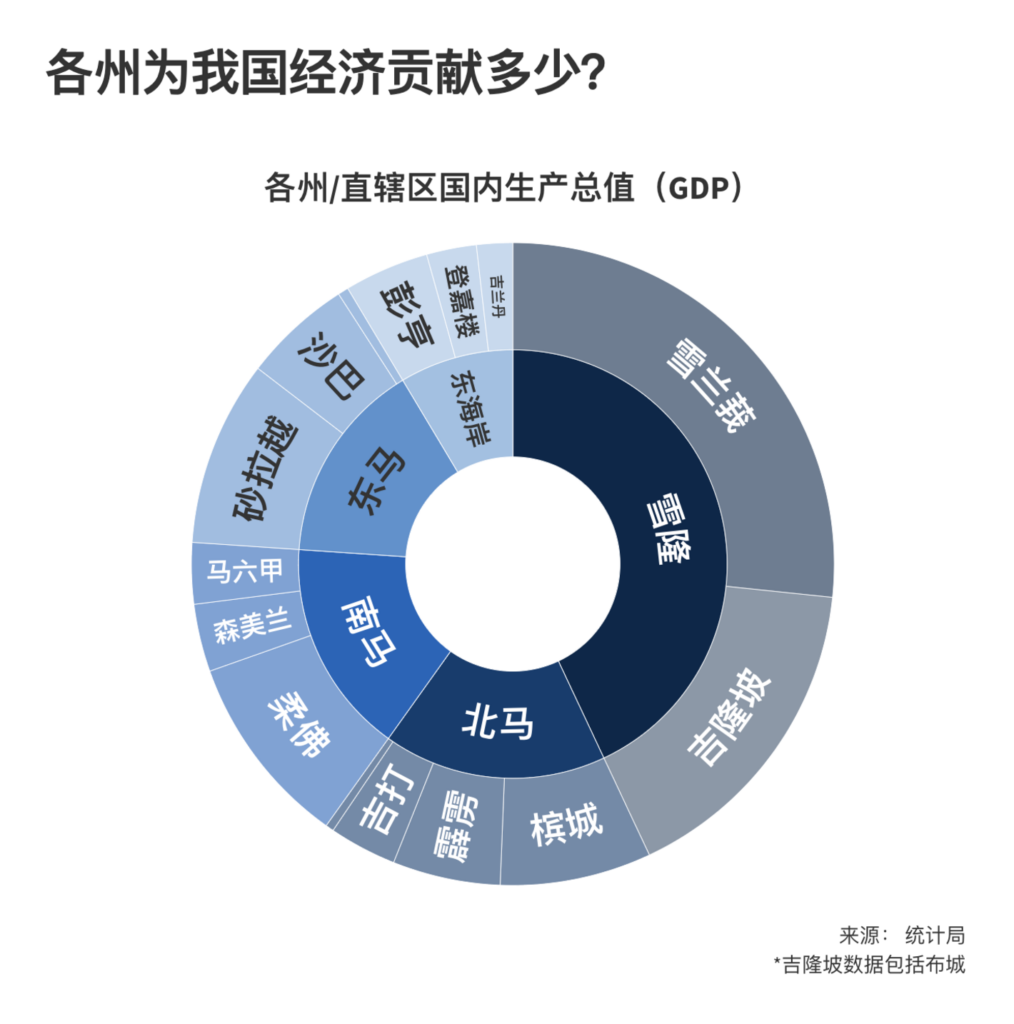
Oil exploration on indigenous territories and an effort to criminalize abortion as simple homicide — two sad stories from Brazil this week:
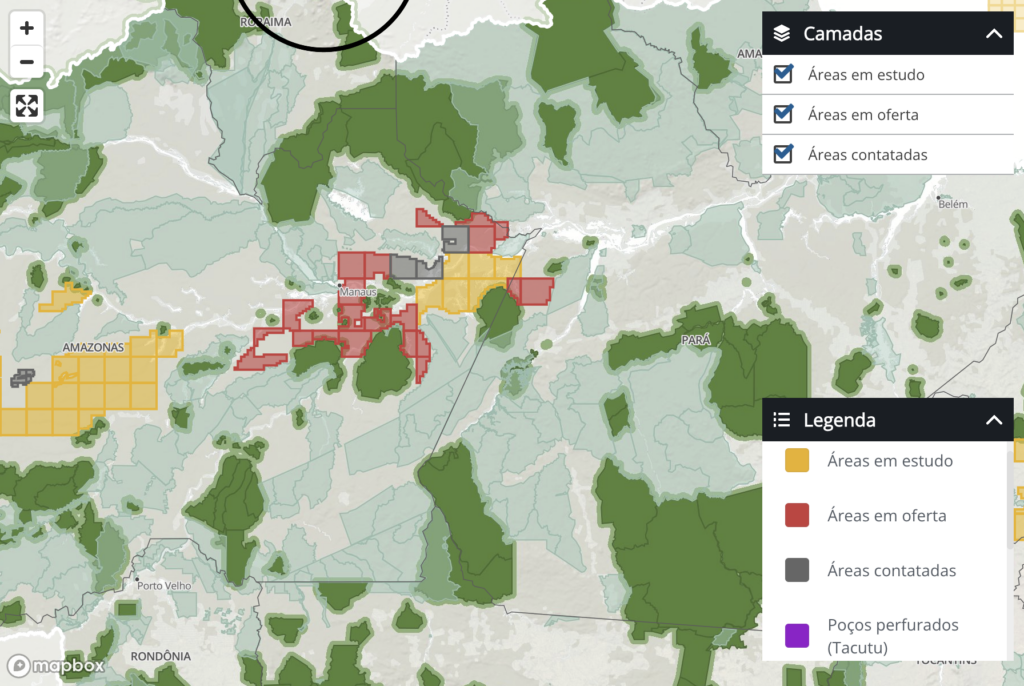
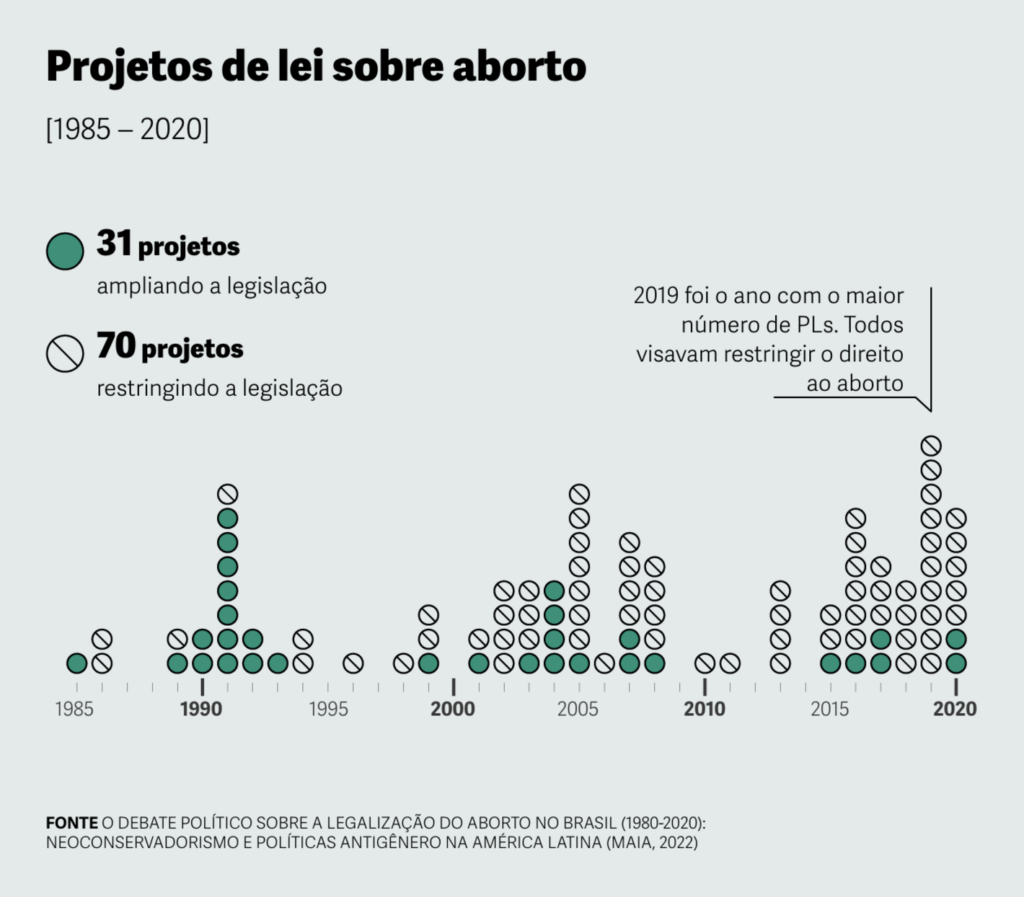
Although Russia does not disclose the number of its soldiers killed or injured in its invasion of Ukraine, various sources suggest that casualties recently passed a new milestone. Plus another rising death toll, of migrant workers in South Korea due to industrial accidents:
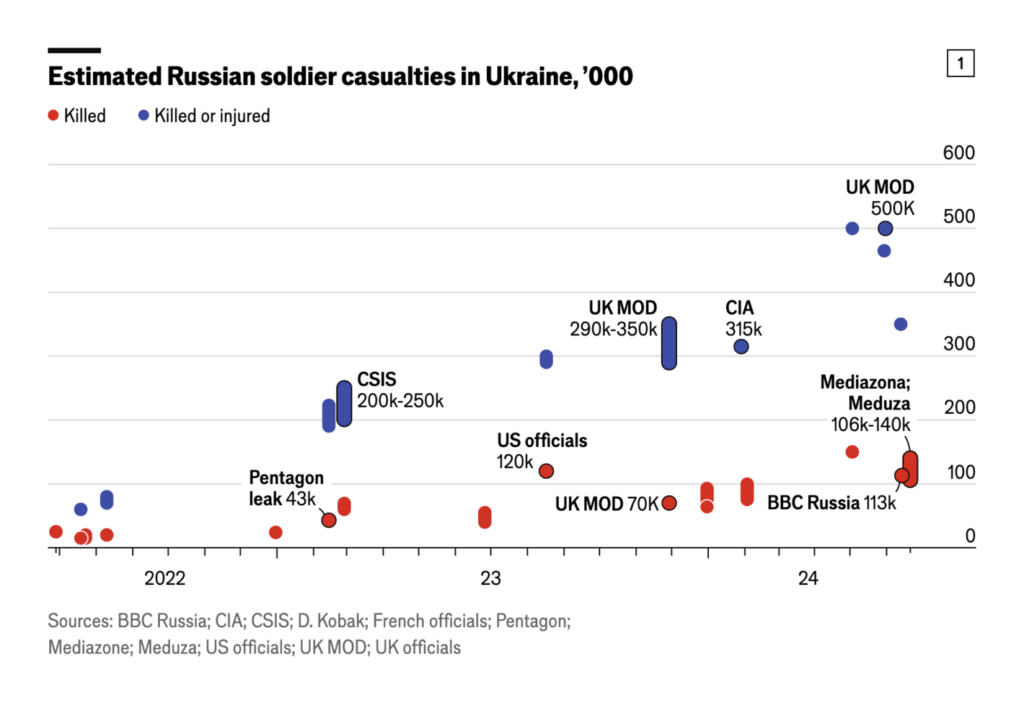
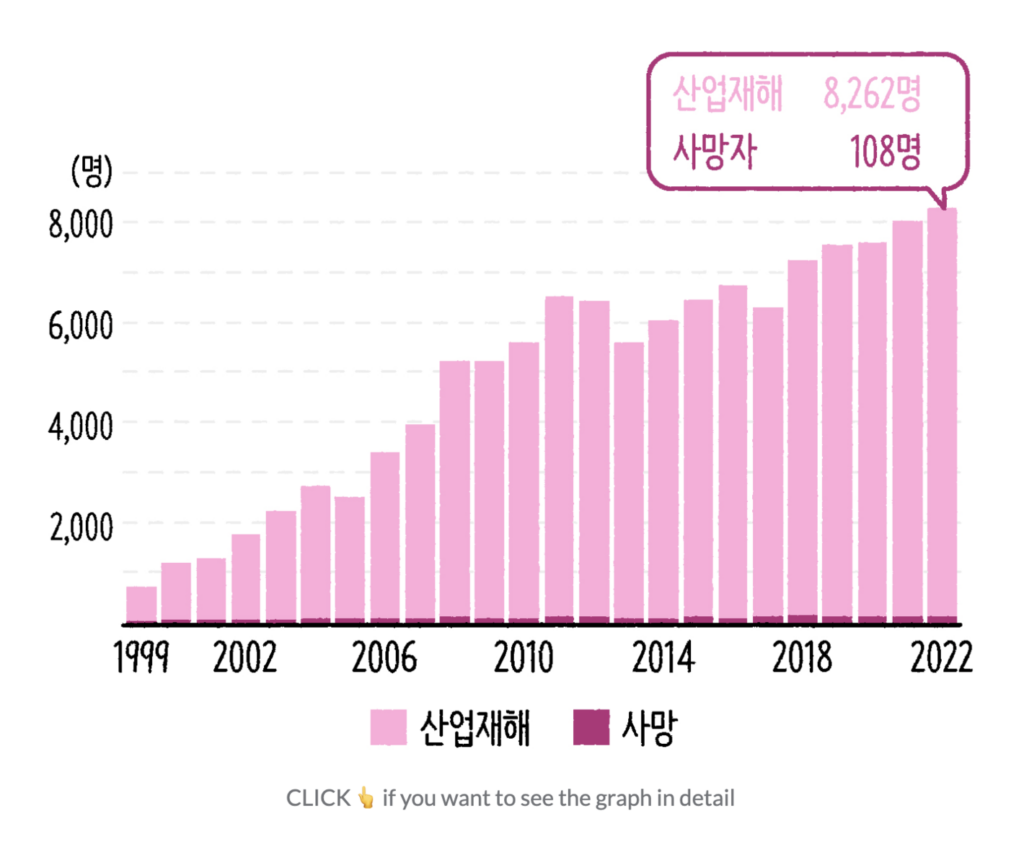
More on migration, including migrant children in the U.S. placed with untrustworthy guardians in the early Biden years, and a detailed analysis of immigrants in Germany:
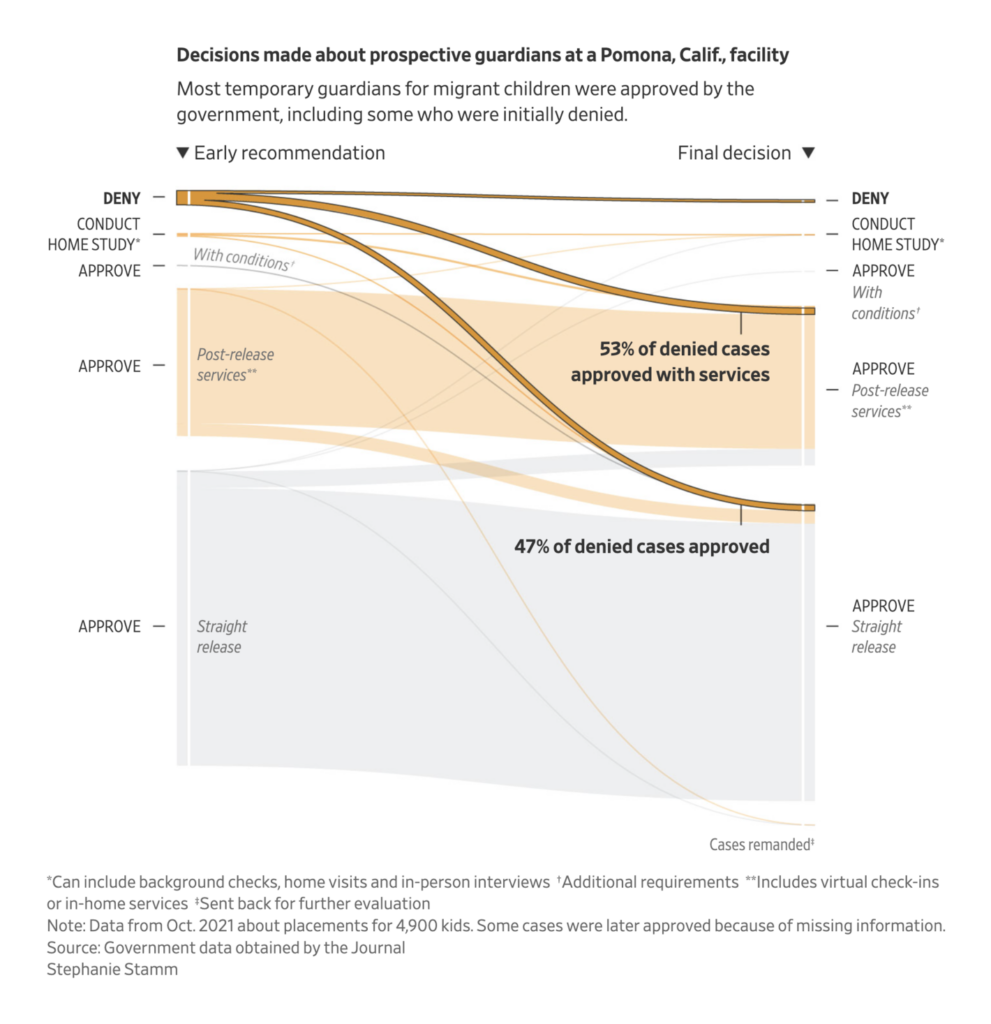
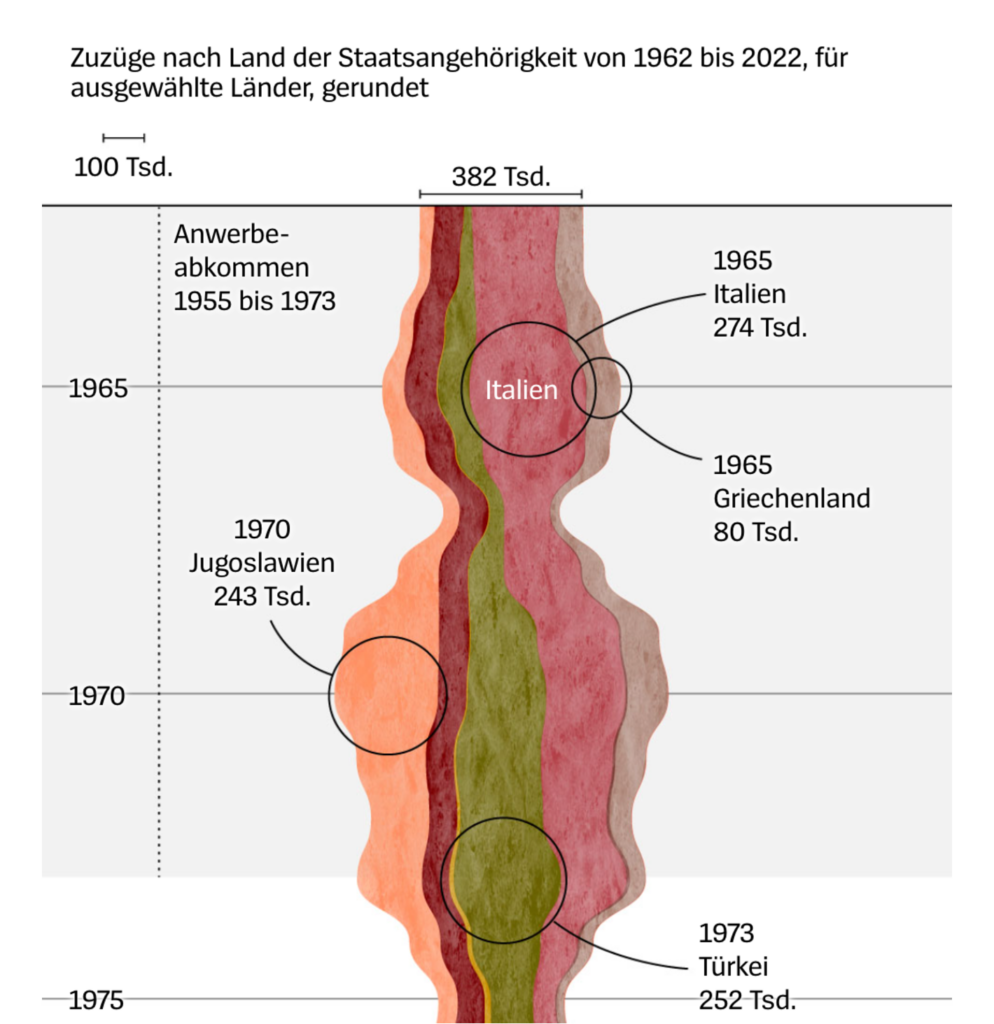
In sports, the ongoing European Football Championship and people running away from bulls:
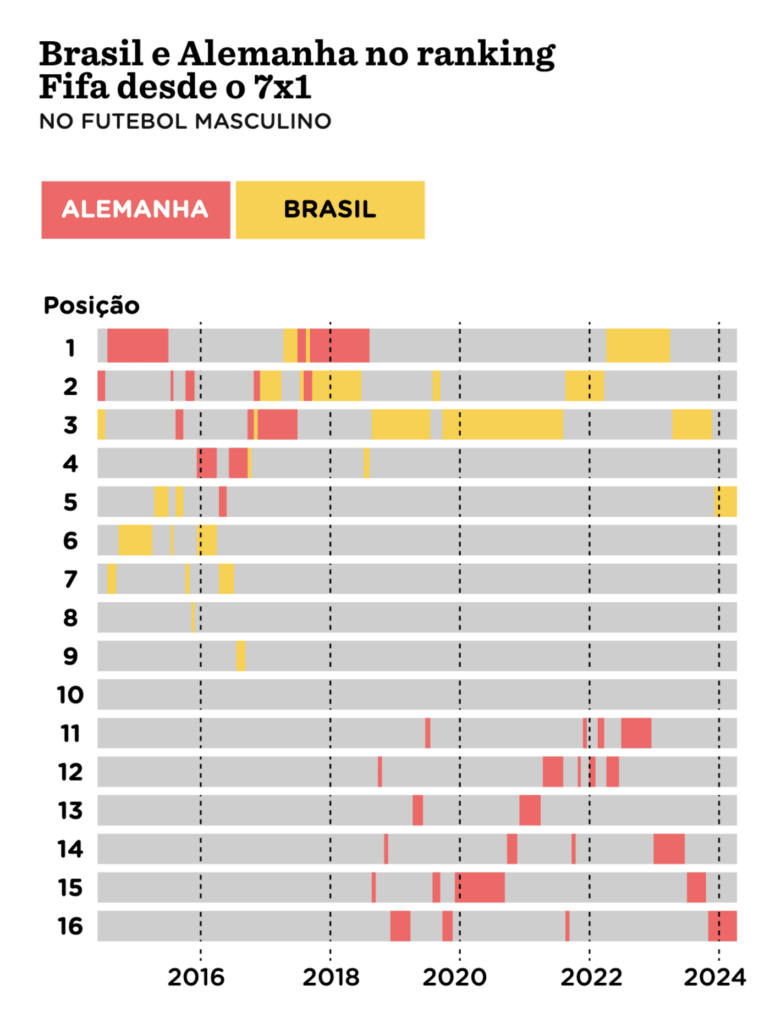
Our miscancellous section this week may be at the end, but is no less important. This year’s Global Gender Gap Report paints a depressing picture for Italian women, who lag far behind men, especially in economic participation. And NATO is strengthening its eastern border with Russia:
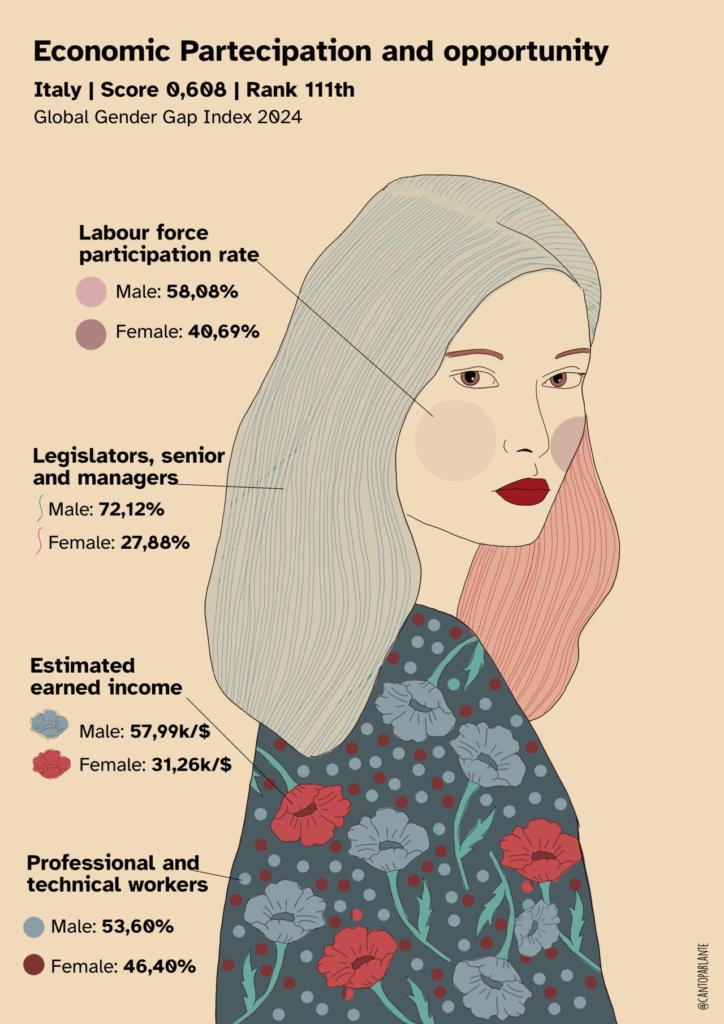
Applications are open for…
Help us make this dispatch better! We’d love to hear which newsletters, blogs, or social media accounts we need to follow to learn about interesting projects, especially from less-covered parts of the world (Asia, South America, Africa). Write us at hello@datawrapper.de or leave a comment below.
Want the Dispatch in your inbox every Tuesday? Sign up for our Blog Update newsletter!
Comments